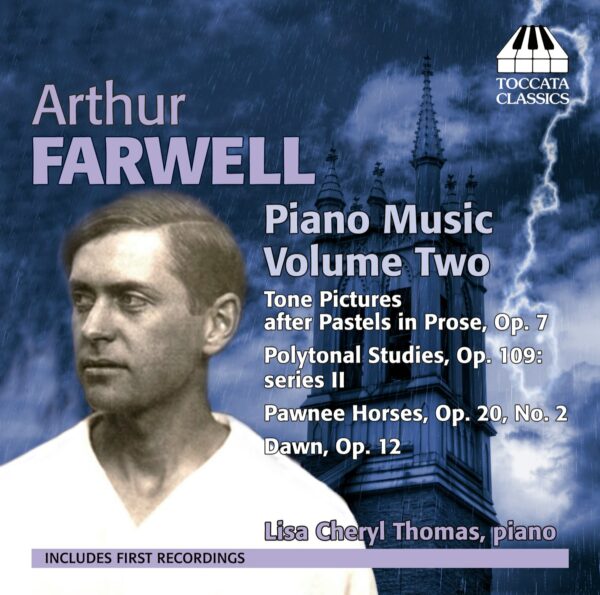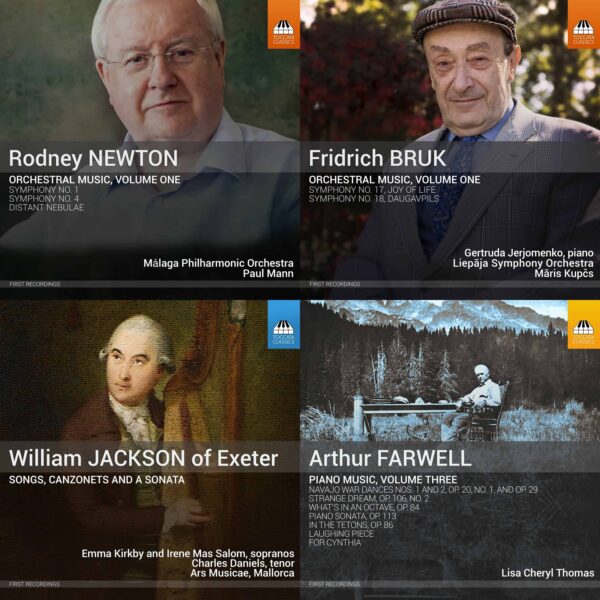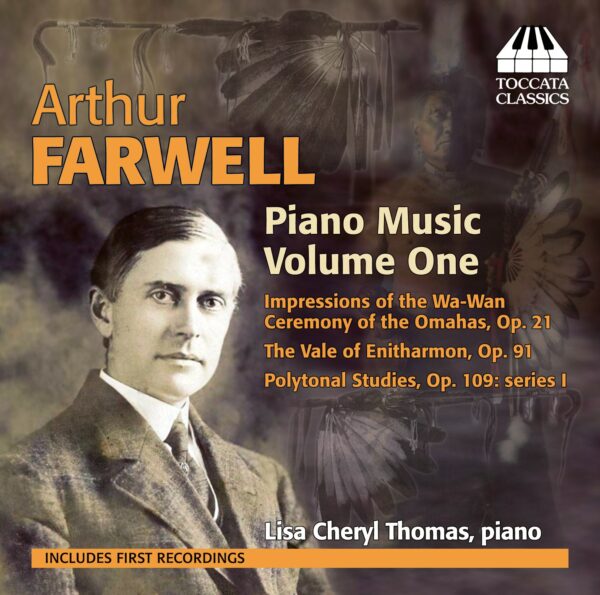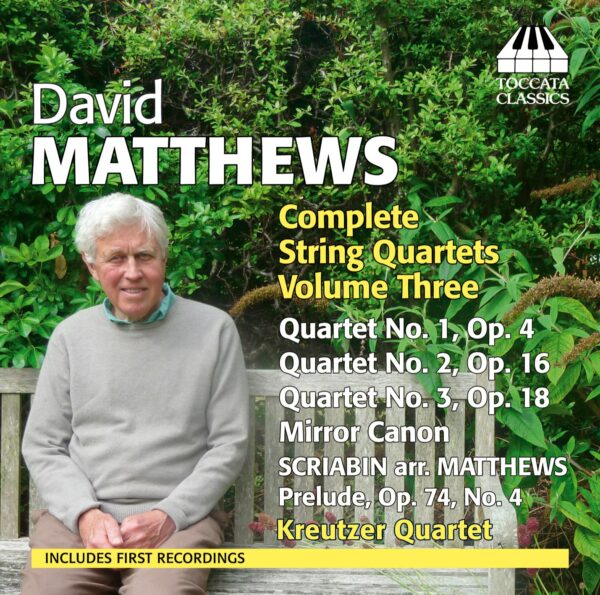Arthur Farwell: Piano Music, Volume Two
The American composer Arthur Farwell (1872-1952) is remembered as the leading member of a group of 'Indianists' who used Native American tribal melodies. But Farwell's stylistic range was much wider than is realised today. This second CD of his piano music presents not only two Indianist pieces but also the early character-pieces Tone Pictures after Pastels in Prose and the experimental Polytonal Studies, which pit two different keys against each other to generate unusual harmonies.
Lisa Cheryl Thomas, piano
Listen To This Recording:
- Dawn, Op. 12 (1902)
- No. 1 Roses and Lilies: ‘Gracefully, with swaying motion’
- No. 2 The Sages’ Dance: ‘In even rhythm – well accented’
- No. 3 The Stranger: ‘Mysteriously – with agitation’
- No. 4 Indifference to the Lures of Spring: ‘Sadly’
- No. 5 The Red Flower: ‘Slowly – longingly’
- No. 6 Anywhere out of the World: ‘With restless discontent – not too fast’
- No. 7 Evening on the Water: ‘Slowly and gracefully’
- No. 8 A Poet Gazes on the Moon: ‘Sombrely’
- No. 9 The Round under the Bell: ‘With wild fury’
- No. 12 C minor/G minor: ‘Moderately’
- No. 13 C minor/F minor: ‘Very moderately’
- No. 14 B minor/G minor: ‘Moderately fast’
- No. 15 C minor/E flat minor: ‘Somewhat slowly, but with motion’
- No. 16 D minor/E minor: ‘Rather fast’
- No. 17 F minor/E minor: ‘Somewhat slowly’
- No. 18 F minor/F sharp minor: ‘Fast’
- No. 19 G minor/B minor: ‘Slowly’
- No. 20 E flat minor/A minor: ‘Deliberately fast, without hurrying’
- No. 21 B flat minor/G minor: ‘Moderately fast’
- No. 26 D flat major/F minor: ‘Very moderately’
- From Mesa and Plain, Op. 20 (1905): No. 2, ‘Pawnee Horses’
Tone Pictures after Pastels in Prose, Op. 7 (1895)
Polytonal Studies, Op. 109: series II (1940–52)





Fanfare Magazine :
‘…Farwell’s op. 12 Dawn (1902) reflects the importance held by Native Indians for the rising of the sun. Here Farwell quotes two melodies from the Nebraska Omaha tribe. It is played with great affection and confidence by Lisa Cheryl Thomas. The recording captures her lovely round sound well; it also supports the levels of detail she finds, and her clear mastery of voice-leading. …[Tone Pictures after Pastels in Prose (1895):] The decidedly Chopinesque third piece (“The Stranger,” after Baudelaire) is most effective, with a left-hand singing melody that seems evocative of the cello (the booklet rightly links it to Chopin’s Étude op. 25/7). …The arrival of the Polytonal Studies, composed between 1940 and 1952, brings a marked change in style. It also continues on from Volume One, which presented the first 11: here is Nos. 12 through 26. The more progressive harmonic language seems to draw depth from Farwell’s pen. There is a delicious Stravinskian tinge to the B-Minor/G-Minor (No. 14), a sort of two-part of invention, a trait that recurs in the D-Minor/E-Minor (No. 16), although here the music seems to strain to return to a purer Bachian mode of expression. …Native American rhythms (and harmonies) permeate the final offering, “Pawnee Horses” (1905). It seems as if though piece acts as summary of the heart of Farwell’s music, and makes the perfect close to the disc.’
—Colin Clarke Fanfare Magazine, September/October 2014
American Record Guide :
‘…Though the grandiose and eloquent Dawn quotes two melodies of the Omaha tribe, it contains textures reminiscent of early Grieg or Howard Hanson. According to Thomas, ‘Pawnee Horses’ demonstrates a respectful use of these melodies, even when combining with conventional western harmony. It concentrates on the American Indian rhythms and melodies more robustly than Dawn, but in neither of these pieces do those elements sound out of place. …[Tone Pictures after Pastels in Prose, Op. 7 and Polytonal Studies, Op. 109: series II:] these works give us a taste of Farwell’s stylistic variety—often overlooked in favor of his “Indianist” works. Thomas, herself part Cherokee, approaches this music with warmth and imagination…’
—Sang Woo Kang, American Record Guide, September/October 2014